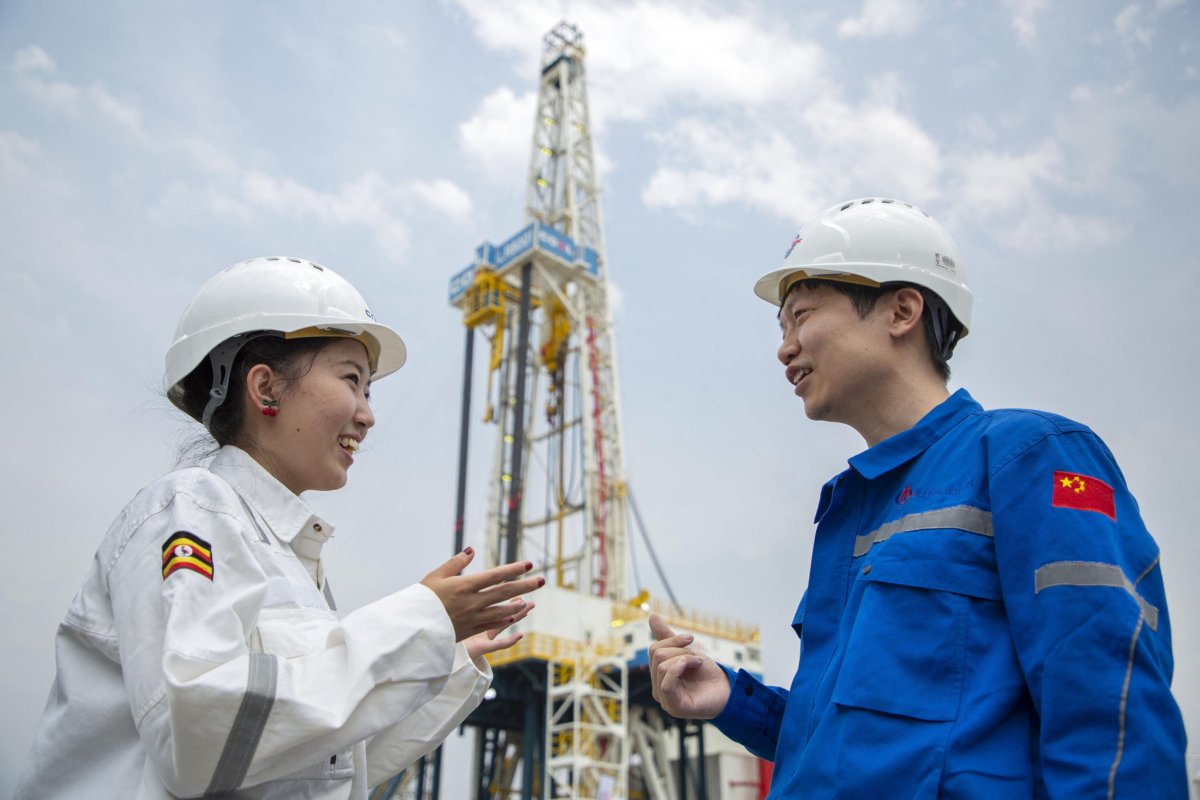Proposed oil production along Uganda’s Lake Albert has unleashed a wave of suffering for local communities, including forced displacement and violence, according to a U.S. climate watchdog.
On Monday, Climate Rights International released a report detailing these abuses, urging financial institutions to cease funding the controversial Kingfisher oil development project spearheaded by the China National Offshore Oil Corporation (CNOOC).
The report highlights severe human rights violations tied to the project, one of two linked to a proposed heated pipeline that would transport Uganda’s oil to Tanzania’s port.
It claims locals who once relied on the shoreline for their livelihood are being drastically impacted by the Kingfisher’s central processing facility.
CNOOC committed to significant investments to the project, which included building infrastructure like roads, drilling wells, and establishing its HQ.
Based on interviews with dozens of affected residents, the report outlines a disturbing pattern of forced evictions, lack of compensation, intimidation, and violence.
There are also allegations of the destruction of fishing boats and sexual violence, accusing Ugandan government troops of perpetuating these abuses while creating a pervasive “climate of fear.”

Chinese workers engage in work conversation at the Kingfisher oil field in Kikuube district on Jan. 24, 2023. U.S. group Climate Rights International has reported serious issues with the oil project led by China National Offshore Oil Corporation (CNOOC).
STUART TIBAWESWA/AFP via Getty Images
Brad Adams, the executive director of Climate Rights International, condemned the project, describing it as a “human rights disaster.”
“It is appalling that a project touted as bringing prosperity to the people of Uganda is instead leaving them victims of violence, intimidation, and poverty,” he said.
The $15 billion investment in Uganda’s oil fields, in which French oil giant TotalEnergies holds a 56.67% stake, with CNOOC at 28.33% and the Uganda National Oil Company holding 15%, represents a significant economic undertaking.
TotalEnergies are also no strangers to historic, long-held criticisms regarding their activities across the country.
Working in conjunction with CNOOC, their plans for the East Africa Crude Oil Pipeline (EACOP), set to be the longest in the world, have been met with dismay from locals and campaigners.
The 897-mile pipeline would cut through ecologically sensitive areas, including seven forest reserves, two game parks, and run alongside Lake Victoria—a crucial water source for 40 million people.
Uganda’s oil reserves were first discovered in the Albertine Graben, a region along Lake Albert, in 2006.
The discovery was hailed as a game-changer for Uganda’s economy.
In the near-two decades that have followed, the country has struggled to turn its oil wealth into economic reality due to tax disputes, corruption allegations, and human rights concerns.
Now, with estimated reserves of over 1.4 billion barrels, oil production is anticipated to begin by 2026.
Ugandan officials, led by President Yoweri Museveni, have responded defiantly to international criticism.
Museveni has framed opposition to the pipeline as interference in Uganda’s sovereignty, asserting that the oil wealth can lift millions out of poverty.
He has also warned that if TotalEnergies and its partners pull out, his government will “find someone else to work with.”
This article includes reporting from The Associated Press









